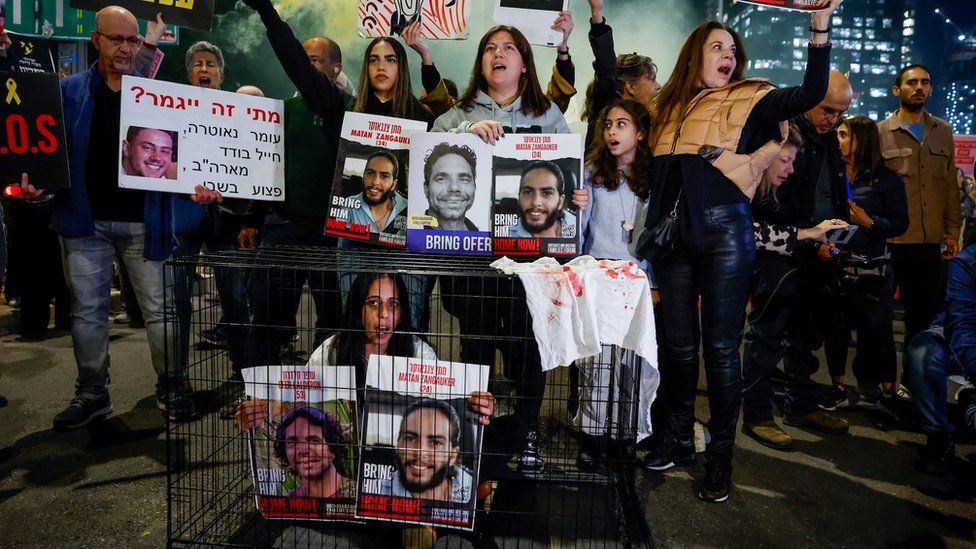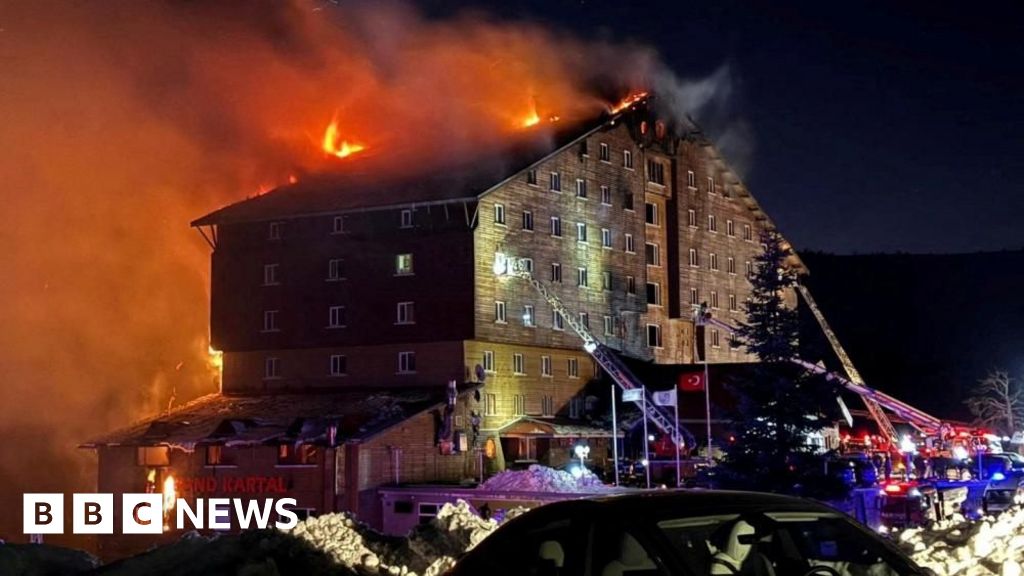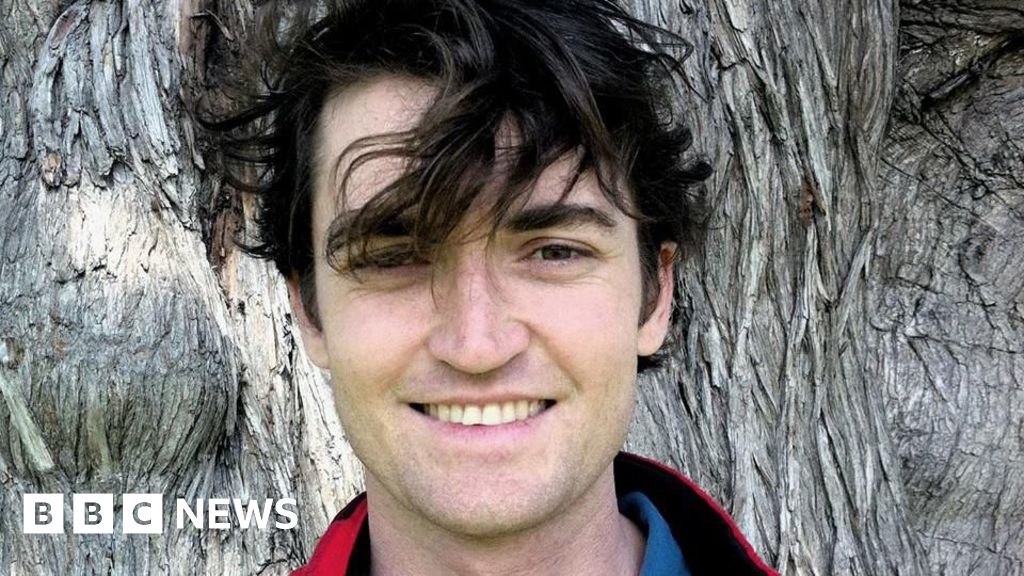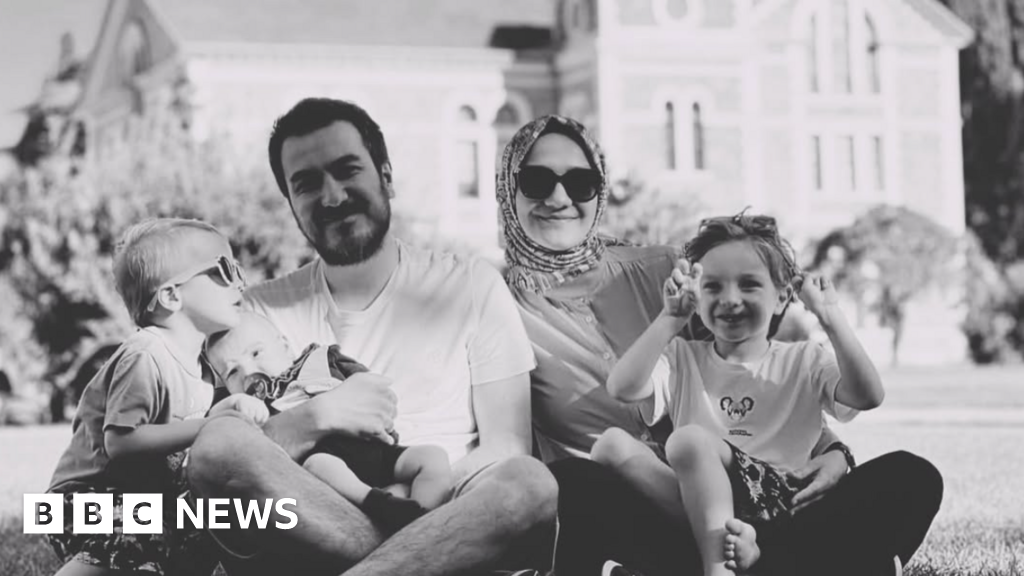ARTICLE AD BOX
 Image source, Reuters
Image source, Reuters
About 300 people took part in Tuesday's protest outside the Israeli military's headquarters in Tel Aviv
By Yolande Knell
BBC News, Jerusalem
Relatives of an Israeli held captive in Gaza were reportedly among those arrested by police at a protest in Tel Aviv, after the latest talks on a truce and the release of hostages broke down.
Some family members and activists used cages to block a main road on Tuesday night, as they demanded more be done to free those still being held by Hamas.
Their calls have become more desperate since negotiators returned from Qatar.
One Israeli official said the indirect talks had reached "a dead end".
Mediators had been pushing a deal for a six-week halt in Israel's offensive in Gaza in return for the release of 40 of the remaining 130 hostages. At least 30 hostages are presumed dead.
About 300 people took part in Tuesday's demonstration outside the Israeli military's headquarters in Tel Aviv - some of them locked in cages, some with placards saying "no price is too high".
Israeli police said they had arrested four protesters "following a disturbance".
"The police acted with the required sensitivity and allowed the protest of some of the hostages' families even though it was not legal," a statement added. "However, some of the protesters decided to go down to Ayalon Highway and block traffic, endangering motorists and themselves."
Israeli media said two of those arrested were relatives of 79-year-old hostage Avraham Munder.
They included his nephew, Shahar Mor Zahiro, who later confirmed in a video outside a police station that he had been held for almost three hours.
'Hope is mandatory': Hostage's mother believes her son will return
Mr Munder was kidnapped along with his wife Ruth, his daughter Keren, and his grandson Ohad, when Hamas fighters stormed into southern Israel on 7 October, killing about 1,200 people and seizing 253 hostages, according to Israeli tallies.
Ruth, Keren and Ohad were released during a week-long ceasefire in November under a deal that saw 105 hostages - most of them women and children - freed in return for some 240 Palestinian prisoners in Israeli jails.
Israeli opposition leader Yair Lapid said the state "should show much more compassion and sensitivity to the families of the hostages".
"They and their families were abandoned, and their fight is the most just fight there is," he wrote on X, formerly Twitter. "The minimum is to let them scream out their cries."
There have been almost daily demonstrations by the hostages' families, but their anguish has been heightened by the news that Israeli officials have been recalled from the talks in Doha mediated by Qatar, Egypt and the US.
On Tuesday, one senior Israeli official close to Mossad director David Barnea - who is heading the Israeli negotiating team - told Reuters news agency that they were "at a dead end" because of Hamas's demands.
Israel had agreed to double to 700 or 800 the number of Palestinian prisoners it would release in exchange for 40 hostages - including elderly people, women, children and the sick - and also to allow some displaced Palestinians to return to their homes in northern Gaza, the official said.
Watch: Gazans reportedly drown after video shows rush for aid drop that landed in sea
Hamas said on Monday that it had rejected the latest truce proposal and that it was sticking to its original position calling for a permanent ceasefire that would lead to a full withdrawal of Israeli troops from Gaza.
The Israeli prime minister's office said Hamas's stance demonstrated its "utter disinterest" in a deal and that it showed the "damage" done by a UN Security Council resolution demanding an immediate ceasefire.
But the US said the Israeli statement was "inaccurate in almost every respect and it is unfair to the hostages and their families" because Hamas's response had been "prepared before the UN Security Council vote".
Qatar meanwhile insisted the talks were "ongoing" and "have not stopped".
A halt to the fighting seems as far off as ever on the ground in Gaza, where more than 32,490 people have been killed since the start of the war, according to the territory's Hamas-run health ministry.
Amid the rising risk of a man-made famine in the north because only a trick of aid is getting in, this week has again seen crowds waiting for airdrops of food along the coast.
However, at least 18 people are said to have died, with graphic videos showing some drowning as they tried to retrieve aid packages from the sea, with others said to have been killed in stampedes.

 9 months ago
39
9 months ago
39








 English (US) ·
English (US) ·